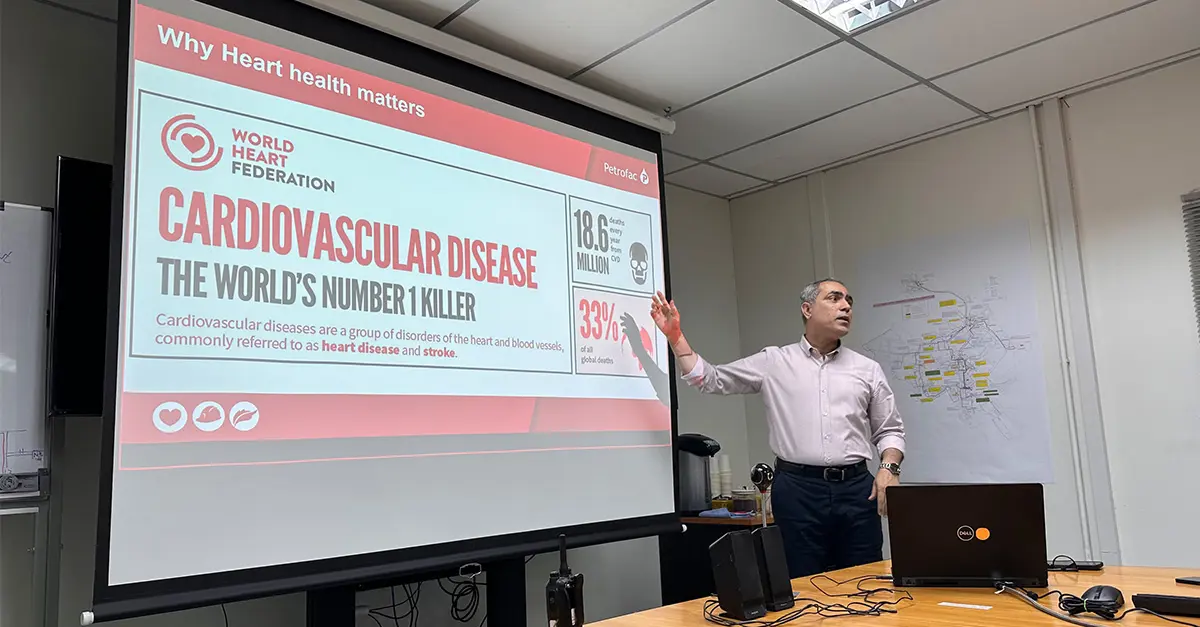“Walking just 75 minutes a week can lower the risk of depression by 18%, while 150 minutes brings that number up to 25%.”
Dr Irshad Laghari, Company Doctor
That’s just one reason why movement matters and why 1,295 colleagues across 15 countries participated in this year’s Petrofac Global Step Challenge.
From pacing on calls to walking with colleagues between meetings, this year’s challenge reminded us that even the smallest steps can lead to a healthier, happier workplace.
We motivated family members to get moving, tried new hobbies, or walked our dogs that little bit further, all in aid of our annual Global Step Challenge. Now in its third year, the challenge shines a spotlight on the importance of daily movement and encourages staff to stay consistent to help form new habits.
Colleagues from across Petrofac laced up their walking shoes and logged every step for our four-week challenge, culminating in an impressive 265 million steps.
Beyond the statistics, what stood out the most were the stories and achievements shared by our inspiring colleagues. Discovering new favourite walking routes, finding clarity on evening strolls, and connecting with colleagues on our lunch breaks were just some of the positives that came from the challenge.
MAKING A HABIT OF IT
For many, the challenge wasn’t just about the steps; it was all about creating a new habit. Eyvaz Mammadli from our team in Malabo, Equatorial Guinea, did most of his steps in an area of just 15 square meters, on the deck at the offshore heliport. “It amazed me how just pacing in that limited space allowed me to consistently meet and even exceed my daily step goals. The challenge showed me that if you really want to, you can dedicate part of your day to movement, no matter where you are and how hectic life gets”.
Paul Buchan from Aberdeen joined as part of his rehabilitation following a major injury. “The desire to get back to full fitness was undoubtedly my main motivator,” he said. “For anyone thinking about taking on a challenge like this, it’s an easy habit to form; to do 10,000 steps in a day, all you need to do is three half-hour walks each day - one in the morning, one at lunch, and one in the evening.”












